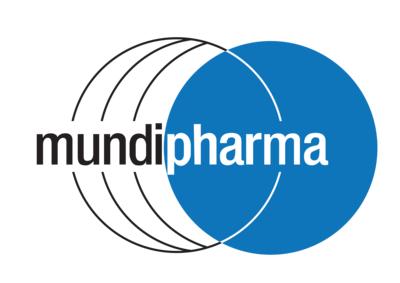Mundipharma Presents Research on Efficacy of BETADINE(R)...
-
SINGAPORE /PRNewswire/ -- The Middle East Respiratory Syndrome (MERS) is a viral respiratory disease caused by a novel coronavirus (MERSCoV) that was first identified in Saudi Arabia in 2012. MERS-CoV, like other coronaviruses, is thought to spread from an infected person's respiratory secretions, such as through coughing. However, the precise ways the virus spreads are not currently well understood1. It has a high fatality rate of approximately 36%. Since September 2012, 1461 cases and at least 514 deaths in 25 countries2 have been confirmed, with a fresh outbreak appearing in Saudi Arabia on 18 August. More than two million pilgrims are projected to visit the Muslim holy city of Mecca in for the annual hajj pilgrimage in September and the Ministry of Health of Saudia Arabia has stepped up efforts to contain the current outbreak of the virus3.
BETADINE® (povidone iodine, PVP-I), has proven strong efficacy against a wide variety of clinically relevant viruses3A recent in-vitro research study4, conducted at Marburg University, Germany, on BETADINE® surgical scrub (7.5% PVP-I), skin cleanser (4% PVP-I), gargle and mouthwash (1% PVP-I) products demonstrated virucidal in-vitro efficacy against infectious pathogens such as MERs, SARs and Influenza that have reported to cause hospital acquired infections and serious consequences on public health.
The study was conducted based on the latest EU test standard EN14476:2014 for antiviral enveloped virus testing (similar to that for Ebola). The results of excellent virucidal activity of various BETADINE® products against Modified vaccinia virus Ankara (MVA) and Middle East Respiratory Syndrome coronavirus (MERS-CoV) were demonstrated with a rapid kill rate of ≥99.99% with 15 seconds.
To date, there is no specific medication or vaccination available to effectively combat MERS or its spread, highlighting the importance of good personal hygiene as the first line of defence in disease prevention and infection control5.
Multiple nonpharmaceutical interventions are required for successful infection control. During high risks of respiratory infections, healthcare workers are encouraged to use gloves and masks as physical barrier against infectious pathogens. Simple hygiene practices such as gargling and hand washing are among the principal means of the prevention of respiratory transmitted infections.
Current guidelines have also suggested healthcare workers to observe proper hand hygiene for decontamination against viruses before and after the change of gloves and masks. Aseptic hand washing with an antiseptic hand wash is deemed as a higher level of hand hygiene over social hand washing. Aseptic hand washing provides the removal and destruction of viruses via disruption of viral replication and metabolic processes6,7.
Encouragement of gargling is important for the control of opportunistic and community acquired infections inJapan8.The primary goal is to encourage everyone to take precautions not only to prevent infection to themselves but also prevent as much human exposure to the respiratory virus as possible.
The recently completed study indicates the potential role of PVPI in protecting against the spread of infection among healthcare workers and the public during infectious disease outbreaks. Adhering to WHO-issued guidelines on hand, respiratory and PPE (personal protective equipment), coupled with PVPI broad virucidal efficacy will help in disrupting the transmission of viruses and limiting the spread of infectious diseases.
"This study not only highlights exciting new findings about the broad spectrum virucidal efficacy of PVPI against a wide range of viruses including MERs, it also reminds us that prevention through proper hygiene is still required to protect the health of both healthcare professionals and the public in the global fight against viral diseases," said ProfMaren Eggers, Head of Experimental Virology and Department of Disinfectant Testing at the Laboratory Prof. G Enders, MVZ Stuttgart. "We must continue to be vigilant and employ all of the weapons including proven PVPI products in our arsenal to fight this unseen enemy."
"Healthcare professionals are the first and often, only line of defence against the phalanx of health threats including MERS facing the world today," says Raman Singh, President, Mundipharma, Asia Pacific, Latin America, Middle East & North Africa. "Mundipharma will continue to work with healthcare professionals around the globe to ensure that they are fully equipped with protective measures including BETADINE® to enable them to continue the fight in this time pressing war against emerging and re-emerging infections."
Mundipharma will be presenting the full research data BETADINE® antiviral efficacy results at the International Meeting on Respiratory Pathogens from 2 – 4 September 2015 in Singapore.
References:
- http://www.cdc.gov/coronavirus/mers/about/transmission.html
- http://www.who.int/csr/don/26-august-2015-mers-saudi-arabia/en/Kawana R et al, 1997,http://www.ncbi.nlm.nih.gov/pubmed/9403252
- http://phenomena.nationalgeographic.com/2015/08/22/mers-saudi-1/
- Eggers M et al. BETADINE® Solution, BETADINE® Skin Cleanser and BETADINE® Surgical Scrub demonstrated excellent virucidal in-vitro efficacy against Ebola virus Poster presented at Asia Pacific Society of Infection Control(APSIC), Taipei, 2015
- http://www.who.int/csr/disease/coronavirus_infections/risk-assessment-3june2015/en/http://www.who.int/emergencies/mers-cov/en/
- http://www.nhsprofessionals.nhs.uk/download/comms/CG1_NHSP_Standard_Infection_Control_Precautions_v3.pdf
- http://www.ipac-canada.org/pdf/2013_PHAC_Hand%20Hygiene-EN.pdf
- Keio University. 15th November 2013. Guidance for the Prevention of Influenza:http://www.hcc.keio.ac.jp/english/information/infection/influenza20131115.htm
Shiraishi T. Nakagawa Y. Evaluation of the bactericidal activity of povidoneiodine and commercially available gargle preparations. Dermatology, 2002;204 Suppl 1:3741
For further information please contact:
Stephenie Vasko
Communications Director - Asia, Latin America & Middle East
PH +65-6303-9732
[email protected]
www.mundipharma.com.sgAbout Mundipharma
The Mundipharma network of independent associated companies consists of privately owned companies and joint ventures covering the world's pharmaceutical markets. These companies are committed to bringing to patients the benefits of pioneering treatment options in the core therapy areas of oncology, pain, respiratory and rheumatoid arthritis.
Logo - http://photos.prnasia.com/prnh/20150302/8521501264LOGO
Source: MundipharmaRelated Links:
